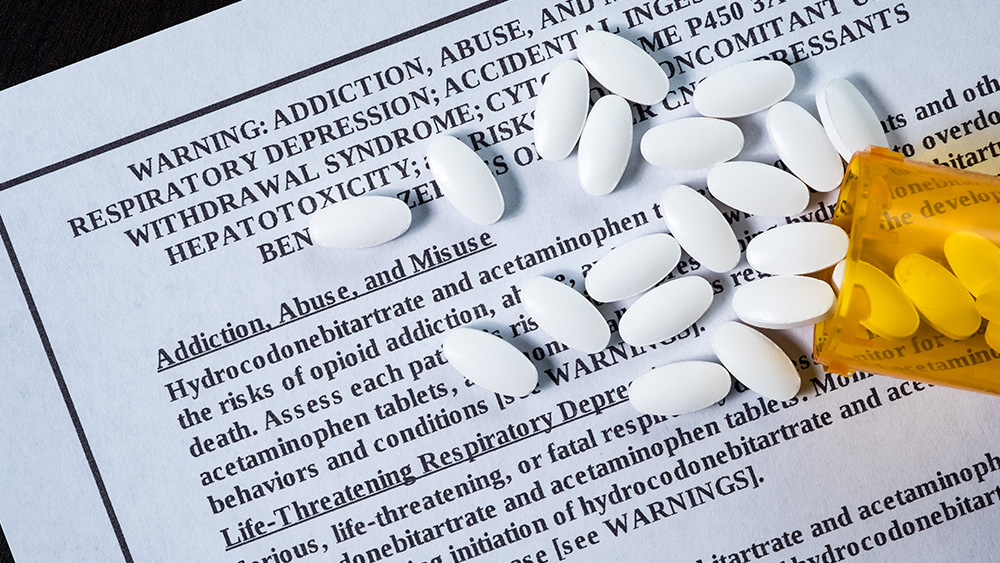- The DOJ has filed a lawsuit against CVS Pharmacy, accusing the company of knowingly filling illegal opioid prescriptions and billing federal health insurance programs for these drugs, contributing to the opioid epidemic.
- The lawsuit alleges that CVS filled excessive opioid prescriptions, including dangerous combinations like the «trinity» mix, and ignored red flags from «pill mill» doctors, leading to fatal overdoses in some cases.
- The DOJ claims CVS prioritized profits over safety, with inadequate staffing, pressure on pharmacists to fill prescriptions quickly, and ignored internal warnings, resulting in an «assembly-line style of medication preparation.»
- The lawsuit seeks to hold CVS accountable under the Controlled Substances Act and the False Claims Act, potentially leading to significant civil penalties and damages. CVS denies the allegations and previously settled similar claims for $5 billion in 2022 without admitting wrongdoing.
- The lawsuit is part of a larger effort to hold corporations accountable for the opioid epidemic, with pharmacies, drug makers and distributors facing numerous lawsuits and settlements totaling approximately $46 billion.
The U.S. Department of Justice (DOJ) has filed a sweeping lawsuit against CVS Pharmacy, accusing the nation’s largest pharmacy chain of knowingly filling illegal opioid prescriptions and billing federal health insurance programs for these dangerous drugs. The lawsuit, unsealed in a federal court in Rhode Island, alleges that CVS contributed to the ongoing opioid epidemic by ignoring red flags and prioritizing profits over patient safety.
According to the DOJ, CVS began filling unlawful opioid prescriptions as early as October 2013. The company allegedly dispensed excessive quantities of opioids and dangerous drug combinations, including so-called “trinity” prescriptions – a deadly mix of opioids, benzodiazepines and muscle relaxants. The lawsuit claims that CVS filled prescriptions from doctors operating as “pill mills,” issuing large numbers of controlled substances without legitimate medical justification. These actions, the DOJ alleges, directly contributed to the opioid crisis and, in some cases, resulted in fatal overdoses.
The lawsuit highlights systemic issues within CVS, including inadequate staffing and corporate-mandated performance metrics that pressured pharmacists to fill prescriptions quickly, often without verifying their legitimacy. Internal warnings from employees were routinely ignored, and pharmacists were deprived of critical information that could have prevented the filling of illegal prescriptions. One former employee described the company’s practices as an “assembly-line style of medication preparation,” prioritizing speed and profit over safety.
The DOJ’s complaint also details tragic cases where patients died shortly after filling illegal prescriptions at CVS. Among the allegations are instances where CVS continued to fill prescriptions for doctors under investigation, despite internal warnings and evidence of their involvement in illegal pill-pushing activities.
“The practices alleged contributed to the opioid crisis and opioid-related deaths, and today’s complaint seeks to hold CVS accountable for its misconduct,” said Principal Deputy Assistant Attorney General Brian Boynton. The lawsuit aims to hold CVS liable for violating the Controlled Substances Act (CSA) and the False Claims Act (FCA), potentially exposing the company to significant civil penalties and damages.
CVS has denied the allegations, stating that it has cooperated with the DOJ’s investigation for over four years and strongly disagrees with the “false narrative” presented in the complaint. The company previously settled similar claims for $5 billion in 2022, though it did not admit wrongdoing in that agreement.
Deadly opioid crisis continues to wreak havoc
The opioid epidemic has had devastating consequences in the United States, with over 800,000 deaths attributed to opioid overdoses between 1999 and 2023, according to the Centers for Disease Control and Prevention. While preliminary data suggests a decline in overdose deaths in recent years, the crisis continues to devastate communities across the country.
The DOJ’s lawsuit against CVS is part of a broader effort to hold corporations accountable for their role in the opioid epidemic. Pharmacies, drug makers and distributors have faced numerous lawsuits and settlements in recent years, with total payouts reaching approximately $46 billion. The case also underscores the critical role pharmacies play as gatekeepers in the pharmaceutical supply chain, responsible for ensuring that controlled substances are dispensed safely and lawfully.
“When lives are destroyed or lost to opioid abuse, it doesn’t matter if the supplier is a street-level dealer, a pill mill, or a nationwide corporation,” said U.S. Attorney Jessica D. Aber. “Our laws regarding the dispensing of opioids and other controlled substances are clear and apply to everyone.”
The lawsuit was initiated by a whistleblower, former CVS employee Hillary Estright, who filed a complaint under the False Claims Act in 2019. The DOJ’s intervention in the case highlights the government’s commitment to combating health care fraud and holding corporations accountable for their actions.
As the legal battle unfolds, the case serves as a stark reminder of the urgent need to address the opioid crisis and ensure that pharmacies prioritize patient safety over profits. The outcome of the lawsuit could have far-reaching implications for the pharmaceutical industry and the fight against opioid addiction in the United States.
Sources include:
